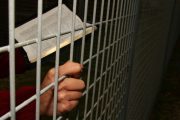
SINGAPORE — A man set himself on fire near the Japanese prime minister’s office in Tokyo on Wednesday to allegedly protest against the government’s decision to organize a state funeral for slain former prime minister Shinzo Abe.
The man, supposedly in his 70s, was taken to hospital after his entire body was burned due to the incident. He admitted to police that he poured oil over himself before setting himself ablaze, according to reports by Kyodo News.
Media sources report that the man allegedly penned a note that stated, “Personally, I am absolutely against” Abe’s funeral. This note was found near the scene of the incident.
Police reportedly received an emergency call around 6:50 a.m. local time that someone had set himself on fire in Tokyo’s Kasumigaseki district. Various cabinet ministry offices are situated in the Kasumigaseki district, including the official workplace and residence of the Prime Minister of Japan.
Kyodo news agency and other outlets reported that police were alerted to the scene after reports that a man was “engulfed in flames.”
Local police and the prime minister’s office refused to authenticate this episode, which happened on what would have been Abe’s 68th birthday.
However, Chief Cabinet Secretary Hirokazu Matsuno admitted in a news conference, “I have heard that police found a man who had suffered burns near government offices, and I’m aware that police are investigating.”
Wednesday’s incident took place amid escalating security measures ahead of an upcoming publicly funded state funeral for Abe. Abe was assassinated in the Nara region during a July 8 campaign stump speech for his ruling Liberal Democratic Party (LDP) this year. The state funeral is slated to take place September 27 at Tokyo’s Budokan, a huge venue for concerts and sporting events.
About 6,000 people from Japan and overseas are expected to attend the funeral, including U.S. Vice President Kamala Harris and Australian Prime Minister Anthony Albanese.
Abe’s suspected murderer allegedly held a grudge against the Unification Church because his mother had made huge donations to the sect, financially ruining his family as a result. The gunman believed Abe was associated with the Unification Church group, officially called the Family Federation for World Peace and Unification.
In July, a private funeral for Abe was held in Tokyo in the days following the shooting. Thousands thronged the streets to offer prayers, condolences, and flowers.
Yet domestic opposition to the idea of a state funeral has been escalating. National broadcaster NHK revealed that 38 percent of respondents opposed the plan in July, but by August that figure had risen to 57 percent.
Protests have been planned in the countdown to the state funeral and on the actual day itself. The government’s decision to hold the state funeral amid public disapproval has resulted in incumbent Prime Minister Fumio Kishida’s support cratering.
Dr. Yoshinobu Yamamoto, professor emeritus of international politics at the University of Tokyo, said the funeral has become controversial for two main reasons — “Questions around Kishida’s decision-making … (and) the issues around the Unification Church and its links to the LDP.”
“He thought the cabinet has the right to decide on what kind of events it holds,” Yamamoto said, “But there is no formal system in Japan that defines state funerals. So what the opposition says is that his government has to seek parliamentary approval after debate.”
Indeed, various opposition politicians asserted that Kishida was going beyond his powers by approving the funeral.
Two local councils operated by Japan’s opposition parties, the Kamakura Municipal Assembly, south of Tokyo, and the Hayama Municipal Assembly, have petitioned Kishida to call off the funeral.
After Abe’s assassination, the LDP revealed that approximately half its members had ties to the controversial Unification sect, whose adherents are occasionally called “Moonies” after the group’s founder Sun Myung Moon.
While Kishida has vowed the party will cut off all ties with the Unification sect, closer scrutiny of the church has unveiled its ties with many Japanese politicians.
For instance, after Kishida reshuffled his Cabinet and party executive lineups in August, many of those politicians involved were found to have some connections with the Unification Church.
The LDP has acknowledged that nearly half of its members have relations with the church, which observers claim urges Japanese followers to make huge donations to make amends for their ancestral sins such as Japan’s former colonization of the Korean Peninsula.
Yet, Kishida’s opinion is that a state funeral for Abe would be “appropriate” because of the latter’s achievements as the country’s longest-serving premier. Thus the government “needs” to hold the funeral as a “state event,” for the entire nation to offer condolences, reasoned Kishida.
Besides, the government wanted to hold the funeral to express appreciation for Abe, in light of a total of around 1,700 condolence messages received from more than 260 countries and regions, Kishida declared.
Despite Kishida’s repeated justifications of his decision, many voters remain skeptical and cast into doubt the necessity of such an expensive ceremony when ordinary citizens are reeling from economic problems such as inflation.
A recent government cost estimate of the funeral is 1.65 billion yen (U.S. $12 million), including security and receptions.
In light of increasing calls for Kishida to justify his rationale for organizing the state funeral, the prime minister himself participated in a recent Diet session to appease critics.
During the session, Kishida broached the topic of relations between members of his ruling party and the Unification sect. He asked his party lawmakers to cut off relations with the Unification Church, infamous for its “spiritual sales” in which people are pressed into buying items at exorbitant prices.
Nonetheless, Kishida rubbished claims that he asked the group to disband, instead highlighting that the government has already introduced measures such as the establishment of a consultation center for its victims.
Abe’s state funeral will become the second for a former prime minister in the post-war period. The first state funeral was for Shigeru Yoshida, who signed the 1952 San Francisco Peace Treaty that permitted Japan to regain its sovereignty.




